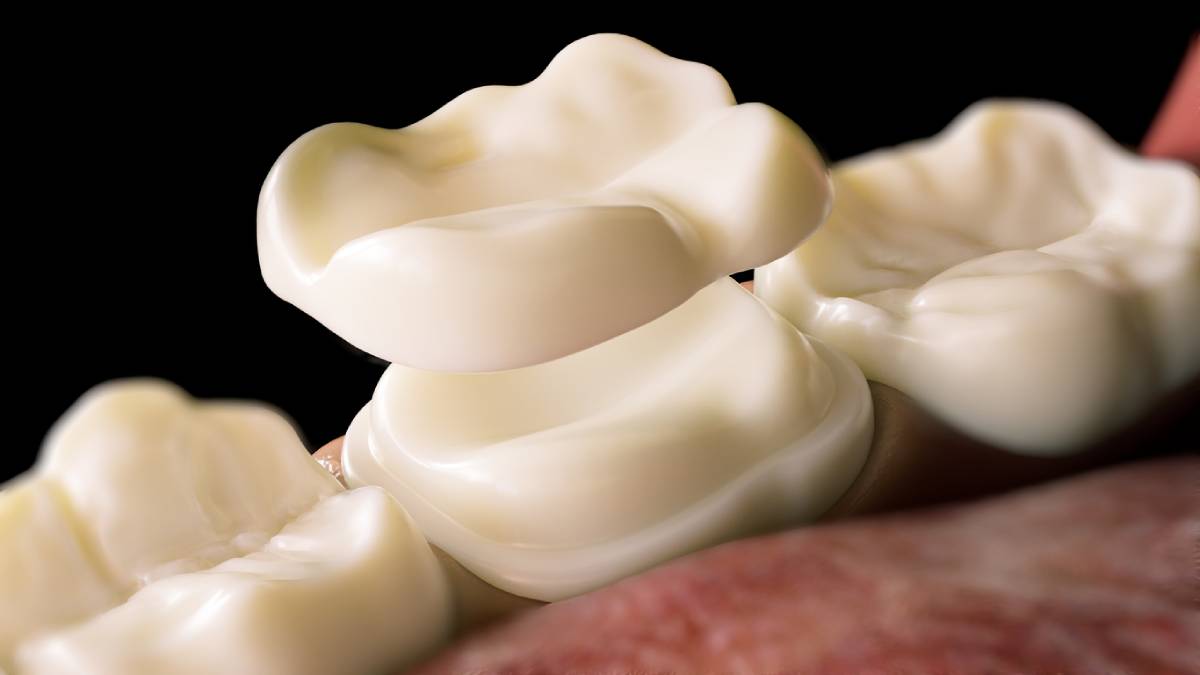Dental crown installation can be a daunting procedure. However, this type of dental restoration can help save a decayed or broken tooth and prolong its life. In this article, we answer the question: how do dental crowns work? We also discuss the procedure and the recovery process.
How Do Dental Crowns Work?
A dental crown is essentially a cap that covers a tooth. A crown is shaped like your natural tooth and can be similar in shade and color to the rest of your teeth if it is made of porcelain, resin composite, or zirconia. Other materials, such as gold and silver, can also be used to make dental crowns. However, they will be more noticeable in the mouth due to the distinguishable colors of these materials.
Dental crowns work by covering a weakened tooth entirely and providing it support, reinforcement, and protection from bacteria and chewing forces. Crowns also restore the function and appearance of a weakened, decayed, or broken tooth. This restoration method often can help save the tooth that would be extracted otherwise.
Who Needs a Dental Crown?
Dental crowns are typically used as a method of treatment in the following cases:
- To protect and restore the function of severely decayed teeth (often used in combination with root canal treatment)
- To reinforce and protect the tooth whose structure is weakened by large dental fillings and can not withstand chewing forces on its own
- To restore, mask, and protect a broken, chipped, or cracked tooth
- To protect a worn-down tooth from bacteria and further damage
- To cover a dental implant (in this case the crown acts like a crown of your natural teeth and is placed on top of an implanted metal post that represents the tooth’s roots)
- To support a dental bridge, which is typically attached to teeth covered with crowns on both sides of the gap
- To cover a severely stained or discolored tooth that does not respond to whitening solutions
The Procedure for Getting a Dental Crown
Typically, getting a dental crown requires two visits to a dental office unless you opt for a same-day dental crown. The procedure of getting a dental crown usually does not cause any significant discomfort to the patient, because a local anesthetic is used to alleviate any possible pain.
The First Visit
During the first appointment, your dentist will prepare your tooth for receiving a crown by removing a small portion of its enamel. Removing the enamel enables the crown to fit the tooth snugly and comfortably. Additionally, some filling material can be used to restore some parts of the tooth.
Once the tooth is prepared, your dentist will take impressions that will be used to custom-make a dental crown. When the impressions are sent to the lab, it usually takes several days or a couple of weeks to create the crown. In the meantime, you will wear a temporary crown that will protect your tooth from bacteria and damage.
The Second Visit
When your crown is ready, your doctor will invite you to the second appointment, during which the temporary crown will be removed and the permanent one fitted onto the tooth. Before bonding the new crown with the tooth, the dentist will make sure that it fits comfortably and make all the necessary adjustments. A special material, dental cement, is used to securely bond the crown to the tooth.
Recovery After Getting a Dental Crown
Typically, the recovery after getting a dental crown does not take more than several days. During this period, you might feel discomfort, mild pain, tooth and gum sensitivity, or swelling at the procedure site. Usually, dentists recommend over-the-counter painkillers to deal with pain and cold compresses to reduce the swelling. However, pain and discomfort should not be severe. If you notice that the symptoms are getting worse or do not go away in a couple of days, visit your dentist as soon as possible for a check-up.
During the recovery, it is important to avoid hard, crunchy, or sticky foods and chew on the other side of the mouth to allow the procedure site to heal properly. Once you are fully recovered, you can return to your usual diet.
Make an Appointment Today
If you need services in restorative dentistry in Highland, California, do not hesitate to call our office today and sign up for an appointment with one of our specialists. We use high-quality materials and modern methods to provide our patients with reliable and comfortable dental crowns. We are looking forward to your visit to East Highland Dental.

